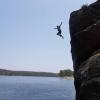- 0
Post traumatic stress disorder and Veterans for Medical Marijuana Acce
-
Similar Topics
-
- 11 replies
- 3,102 views
-
- 35 replies
- 5,819 views
-
Queensland: STOP Cannabis Arrests and Prosecutions Now 1 2
By MongyMan,
- cannabis
- queensland
- (and 2 more)
- 18 replies
- 12,082 views
-
- 1 answer
- 1,284 views
-





Question
grace
Author: J. Craig Canada
J. Craig Canada is an Examiner from San Francisco. You can see J. Craig's articles on J. Craig's Home Page.
My Bio Subscribe to Email Add J. Craig to Favorite Examiners
http://www.examiner.com/x-14883-Santa-Cruz...arijuana-Access
Link to comment
Share on other sites
0 answers to this question
Recommended Posts
Join the conversation
You can post now and register later. If you have an account, sign in now to post with your account.
Note: Your post will require moderator approval before it will be visible.